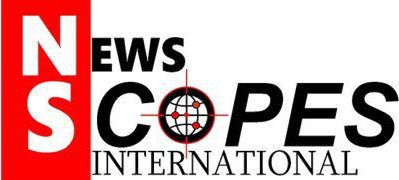في ظل التصعيد العسكري المتزايد بين حزب الله وإسرائيل، يُلقي العميد الركن المتقاعد ناجي ملاعب الضوء على تعقيدات هذا الصراع وأبعاده الإستراتيجية. وأكد في حديثه لموقع “ليبانون ديبايت” أن سقف المطالب المرتفع الذي يطرحه الطرفان يجعل من الصعب الوصول إلى تسوية. إذ يربط حزب الله وقف إطلاق النار في غزة، بينما يضع رئيس الوزراء الإسرائيلي بنيامين نتنياهو شروطًا تقلل فرص الاتفاق، مثل اشتراط العودة الآمنة للمستوطنين إلى الشمال، الأمر الذي يعقد المفاوضات الجارية في نيويورك. وأضاف ملاعب أن نتنياهو وضع شرطين أساسيين، الأول هو تعهد حزب الله بالخروج من الليطاني، والثاني هو الموافقة على التطبيع، ما يزيد من تعقيد الوضع.
وحول الانتقادات الموجهة لحزب الله بشأن قوته العسكرية، أوضح ملاعب أن الحزب أطلق أكثر من 400 صاروخ، بعضها استهدف قواعد عسكرية إسرائيلية جديدة وتل أبيب، مما يدل على أن حزب الله ليس في وضعية انتظار كما يشاع.
أما فيما يتعلق بموقف إيران، فقد أكد ملاعب أنها قدّمت دعمًا كبيرًا لحزب الله دون التدخل المباشر في العمليات. وانتقد من يطالب إيران بالتدخل العسكري المباشر، مشيرًا إلى أن إيران ساعدت حزب الله بشكل كبير تقنيًا ولوجستيًا، ولكن لا يمكن توقع تدخلها المباشر في القتال. وأضاف أن إيران كانت واضحة بشأن عدم مشاركتها في عملية “طوفان الأقصى”، مؤكدة أن هذه الحرب ليست حربها، وبالتالي لا يمكن لأحد أن يفرض عليها الدخول فيها.
المصدر: ليبانون ديبايت
“Rising Tensions: The Dimensions of the War Between Hezbollah and Israel!”
In the midst of the escalating military conflict between Hezbollah and Israel, retired Brigadier General Naji Malaeb sheds light on the complexities and strategic dimensions of the current confrontation. In an interview with “Lebanon Debate,” Malaeb pointed out that the high demands from both parties make reaching a settlement difficult. Hezbollah ties its position to the ceasefire in Gaza, while Israeli Prime Minister Benjamin Netanyahu sets conditions that reduce the chances of an agreement. Netanyahu’s main demands include the safe return of settlers to the north and Hezbollah’s withdrawal from the Litani River, along with agreeing to normalization, further complicating the ongoing negotiations in New York.
Malaeb also addressed criticism regarding Hezbollah’s military strength, emphasizing that the group has already launched over 400 missiles, targeting new Israeli military bases and even Tel Aviv, demonstrating that Hezbollah is actively engaging in the conflict despite claims to the contrary.
Regarding Iran's role, Malaeb highlighted that Tehran has provided significant support to Hezbollah without directly participating in the fighting. He criticized those calling for Iran's direct military intervention, noting that Iran has equipped Hezbollah with advanced weaponry, drones, and cyber capabilities. However, it is unreasonable to expect Iran to fight on behalf of Hezbollah. He also reminded that Iran was not involved in the planning of the “Al-Aqsa Flood” operation, reiterating that this war is not Iran's, and no one has the right to impose such a conflict on it.
translated by international scopes team







